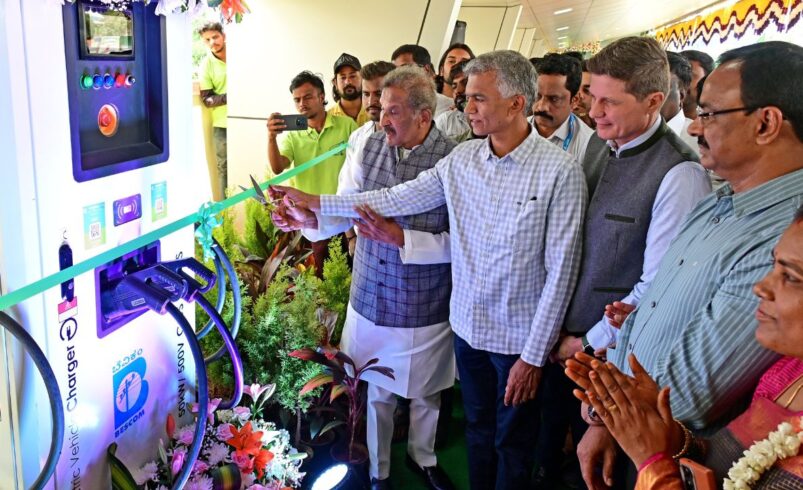Karnataka’s Green Leap: India’s First Solar-Powered EV Charging Hub Near Bengaluru Airport
- June 3, 2025
- 0
In a significant move towards advancing India’s electric mobility and green energy goals, Karnataka has inaugurated the country’s first solar-powered integrated electric vehicle (EV) charging hub near Kempegowda









